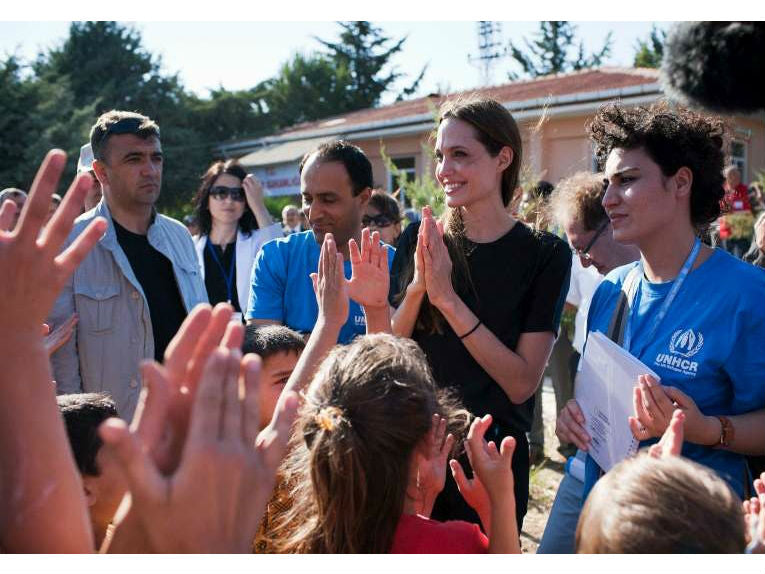"No one wants to become a refugee. No one should have to endure this humiliating and arduous ordeal. Yet, millions do. Even one refugee forced to flee, one refugee forced to return to danger is one too many."
UN Secretary-General Ban Ki-moon spoke those words on the occasion of the 50th anniversary of the 1951 UN Convention relating to the Status of Refugees.
Prior to 2000, African Refugee Day had been formally celebrated each year in several countries on 20thJune and the Organisation of African Unity (OAU) agreed that International Refugee Day should fall on the same date.
On 4th December 2000 the UN General Assembly adopted a resolution where note was taken that 2001 marked the 50th anniversary of the 1951 Convention and that from 2001, 20th June would be adopted as World Refugee Day.
Now 61 years on from the original Convention and with a message that "One Refugee Without Hope is too Many", the United Nations High Commission for Refugees (UNHCR) lists a total of 33,924,475 refugees in the various countries of the world. These of course are the ones known to the UNHCR and the true figure has been estimated as being in excess of 43.7 million.
80% of the world's refugees are women and children, many of whom have been displaced by armed conflicts. Faced with the choice of staying behind and taking a chance with all the associated risks that would entail, they have chosen an uncertain and probably just as dangerous future by leaving everything in search of hoped-for safety.
Sadly for many their dreams end in sickness, disease and starvation and with their lives on the knife-edge of survival, the only place of safety is a refugee camp.
Our world is becoming increasingly unpredictable, with a multiplying number of violent conflicts. Speaking at an international conference at Basle in March 2012 the UN High Commissioner for Refugees, Antà ³nio Guterres, reported that during 2011 large displacement crises in Africa and the Middle East created nearly 800,000 new refugees. Nearly a quarter of Somalia's population is now displaced and more than five million people are affected by displacement in and around Sudan and South Sudan.
More recent events in 2012 have caused around 81,000 Malians to seek refuge in neighbouring countries and the number of Syrians who have fled the violence in their country is now well past the 40,000 mark.
Senhor Guterres went on to point out that while new crises continued to develop, old ones never seemed to die. Millions of refugees from places like Afghanistan, Somalia and the Democratic Republic of the Congo were unable to return home.
Whole generations of refugees are now born in camps and for tens of thousands of children now growing up, their grandparents were the last ones to see their home country. A life in this world of protracted exile, said Senhor Guterres, too often meant a life without any prospect of hope for the future and no durable solution in sight.
As Ban Ki-moon said, no one wants to be a refugee, but every minute of every day eight people decide to leave everything behind to escape war, persecution or terror. It is often a stark choice; either stay and risk your life and the lives of you family, or try to escape and risk kidnap, rape or torture. Essentially it is a choice between the horrific or something worse.
Raising awareness of this problem is vital and that's where World Refugee Day is so important. High-profile figures such as actress Angelina Jolie, who has recently been appointed as Special Envoy to Antà ³nio Guterres, can help to draw attention to this massive problem. Angelina Jolie will be working particularly with finding solutions for people displaced by conflict.
Events are held in more than 100 countries, with many countries running events over several days. In the UK, for instance, World Refugee Day falls in the middle of World Refugee Week.
Many activities will focus on what it is actually like to be a refugee. For those of us who have a warm and stable lifestyle, it is hard to imagine how dreadful the lives of refugees must have been to force them to put themselves through the trauma and upheaval of leaving their homeland to undertake a difficult and dangerous journey in the hope of finding a better life.
But all too often the hoped-for better life ends up in a refugee camp or a detention centre.
Everyone in the world has a human right to a secure place that they can call home. For many, returning to their original home is no longer possible. World Refugee Day and the support that it generates will at least give these people cause for some hope of better things to come.










